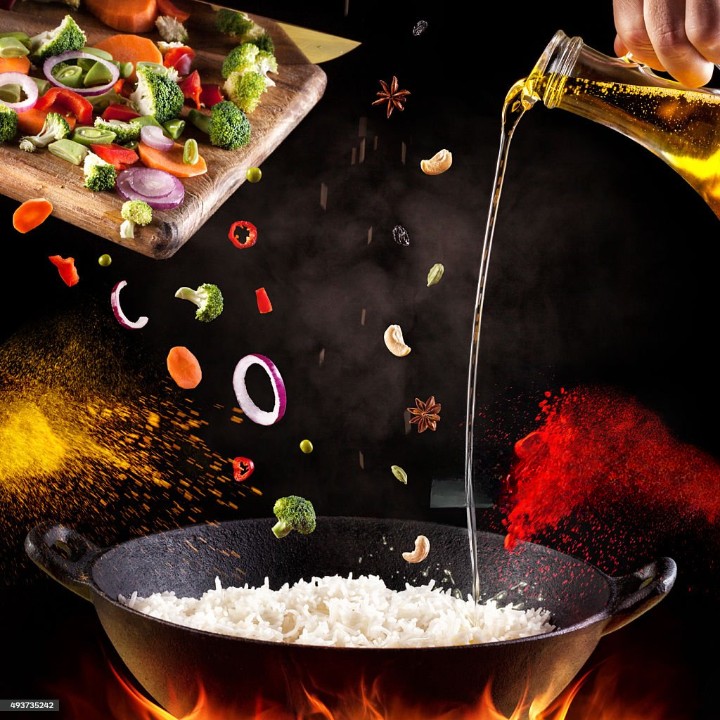Exploring Ayurvedic Cooking: Nourish Your Body and Balance Your Doshas
"Dive into Ayurvedic Cooking: Learn to nourish your body and balance doshas with wholesome ingredients and mindful preparation. Embrace holistic wellness through the art of Ayurvedic cuisine."


Understanding the Doshas
Before delving into Ayurvedic cooking, it is important to understand the three doshas and their characteristics:
Vata: Vata is associated with the elements of air and space. It governs movement, creativity, and flexibility. When in balance, Vata individuals are energetic, enthusiastic, and imaginative. However, an imbalance can lead to anxiety, restlessness, and digestive issues.
Pitta: Pitta is associated with the elements of fire and water. It governs digestion, metabolism, and transformation. Pitta individuals are generally intelligent, focused, and goal-oriented when in balance. However, an imbalance can lead to anger, irritability, and inflammation.
Kapha: Kapha is associated with the elements of earth and water. It governs stability, strength, and structure. Kapha individuals are typically calm, grounded, and nurturing when in balance. However, an imbalance can lead to lethargy, weight gain, and congestion.
Ayurvedic Cooking Principles
Ayurvedic cooking incorporates several principles to promote balance and harmony in the body:
Seasonal and Local Ingredients: Ayurveda emphasizes the use of fresh, seasonal ingredients that are locally sourced. This ensures that the food is in harmony with the environment and provides the necessary nutrients for the body.
Balance of Tastes: Ayurvedic meals aim to include all six tastes - sweet, sour, salty, bitter, pungent, and astringent. Each taste has a specific effect on the doshas, and a balanced combination helps maintain their equilibrium.
Spices and Herbs: Ayurvedic cooking utilizes a wide variety of spices and herbs, which not only enhance the flavors but also have medicinal properties. Turmeric, ginger, cumin, and coriander are commonly used for their digestive and healing benefits.
Food Combining: Ayurveda emphasizes proper food combining to optimize digestion. It suggests avoiding incompatible food combinations, such as mixing dairy with fruits or consuming raw and cooked foods together.
Mindful Eating: Ayurveda emphasizes the importance of mindful eating, which involves being present and fully aware of the eating process. This includes chewing food thoroughly, eating in a calm environment, and avoiding distractions.
Ayurvedic cooking offers a wide range of delicious and nourishing recipes that cater to individual dosha types. By incorporating these principles into your cooking, you can not only enjoy flavorful meals but also support your overall health and well-being. Whether you are looking to balance your doshas, improve digestion, or simply explore a new culinary tradition, Ayurvedic cooking is a wonderful way to nourish your body and enhance your vitality.
Ayurveda, the ancient Indian system of medicine, places great emphasis on the importance of food and its role in maintaining optimal health. One of the key aspects of Ayurvedic principles is the concept of doshas, which are the three bio-energies that govern our physical and mental well-being. These doshas, known as Vata, Pitta, and Kapha, are present in varying degrees in every individual, and their balance is essential for overall health and vitality.
Ayurvedic cooking is a holistic approach to food that focuses on nourishing the body and balancing the doshas. It emphasizes the use of fresh, seasonal ingredients and cooking methods that enhance the natural flavors and nutritional value of the food. By incorporating Ayurvedic cooking principles into your diet, you can not only enjoy delicious meals but also promote optimal health and well-being.

